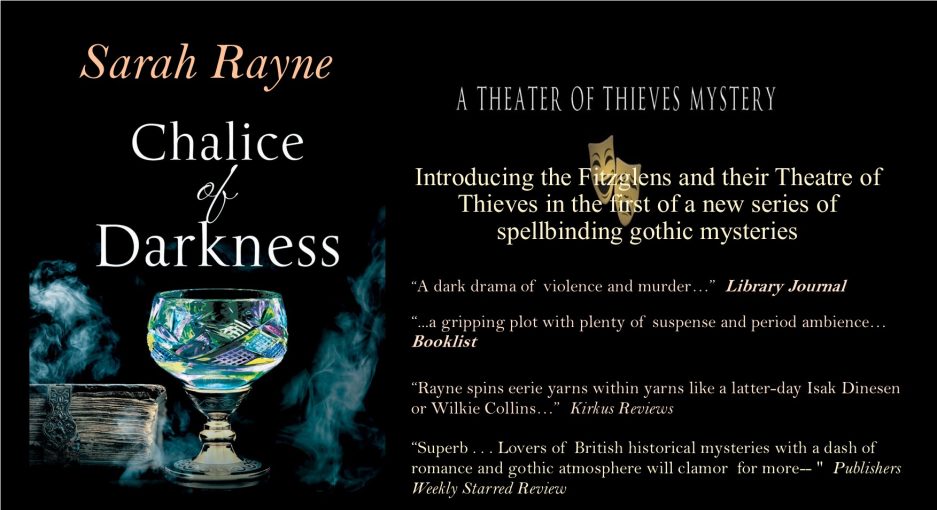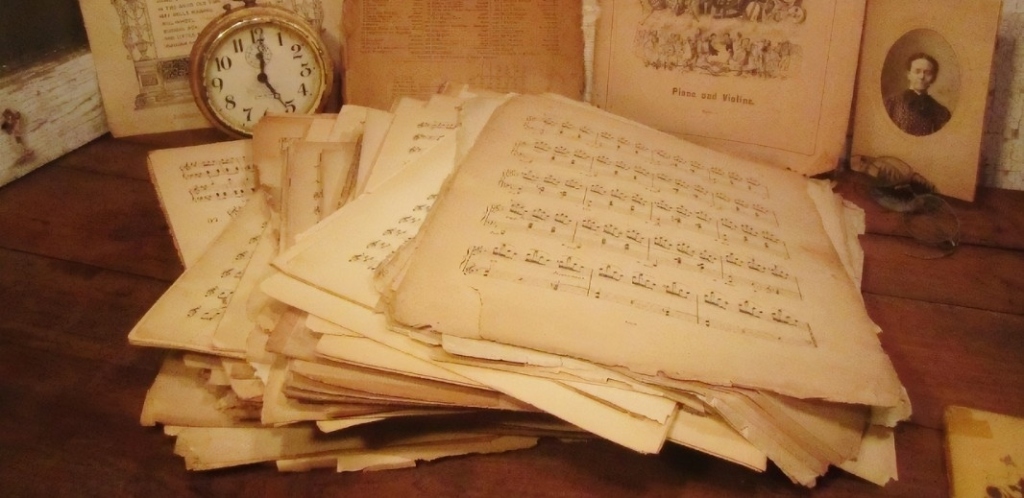Launching the newly-created Fitzglen family on their maiden voyage in Chalice of Darkness, I trawled a great many legends to provide them with a plot.
There is, of course, an abundance of material when it comes to legends and lore and myths. Some might be true, some might be heavily embroidered, and a great many are probably outright fiction. But most of the stories can be used as the base of a plot – especially a plot involving a family who are proud of their reputation as one of London’s leading theatrical families in the early 1900s, but who are equally proud of their other profession. The Fitzglens pursue this second profession very discreetly indeed; unknown to most of Edwardian London, they are what they like to term society burglars.
The world is littered with a great many intriguing legends, of course, and most of the ones that thread England’s past in particular have a pleasing touch of eeriness. There are spectral coaches that rattle across ancient courtyards to herald a death – ghostly music from empty rooms – disgruntled apparitions demanding the righting of wrongs. There are grey ladies in old rectories, and occasionally even a mischievous gentleman in Elizabethan costume, hinting slyly that he knows where an undiscovered Shakespearean folio is buried.
But as well as that, there are stories of gifts allegedly bestowed by grateful monarchs on their subjects – bowls or cups or religious vessels, all beautiful, most valuable, but several that carry strange pledges or disquieting warnings. Out of this embarrassment of riches, for me, one legend stood out.
The Muncaster Luck.
The story goes that in the mid-1400s no less a person than Henry Vl gave to a noble Cumberland family a bowl, in gratitude to them for sheltering him during his exile after losing his Throne to Edward lV.
The family were the Penningtons of Muncaster Castle, and Henry’s gift to Sir John Pennington carried a pledge that the bowl held good fortune, and that as long as it was unbroken the Penningtons would prosper. That belief has survived from that century to this – as, remarkably, has the bowl itself.
A fragment of an old verse apparently promises:
“It shall bless thy bed, it shall bless thy board, They shall prosper by this token, In Muncaster Castle good luck shall be Till the charméd cup is broken.”
The story held out an alluring hand. But I thought that to use the Muncaster legend itself – especially as the bowl can still be viewed in Muncaster Castle – could be fraught with potential problems. Historical facts often have the annoying way of tripping up fictional events. But there seemed no reason why a whole new legend could not be created – that of a bowl, or, better still a chalice, in similar vein to the Muncaster Bowl, but with a dark back-story that would be all its own.
And so the the Talisman Chalice of the book came into being.
Rather than assign this fictional Chalice’s origins to the hapless Henry Vl, I arranged for it to make its first appearance in the company of Richard II, who already had a few robust tales in his armoury, and whose reputation I thought could probably take one more. By this point in the writing of the book, the Chalice itself had collected a few robust tales of its own, as well – most notably that anyone who possessed it ‘wrongfully’ would be dragged into a darkness ‘from which he or she would never emerge’. Which could be interpreted as a medieval warning to enterprising thieves that if the Chalice were to be stolen, a very bad fate would befall those who stole it.
All of which resulted in Jack Fitzglen attempting to uncover scandals and secrets, and to encounter a dark danger that was to threaten his beloved theatre of thieves.
Having dealt with the part of the story that would stretch across several centuries and encompass a few changes of royal dynastic rule – and having incorporated what promised to be a satisfying touch of the macabre into the mixture – there then came the matter of how the insouciant Fitzglens could actually track down the Chalice. Led by the inventive Jack, they could certainly explore scholarly documents and investigate academic lines of enquiry. But it seemed equally likely that they would hunt out clues within the raucous, often-scandalous Edwardian theatre world to which they belonged. Because mightn’t plays have been written about the Talisman Chalice? Or even songs? This latter idea was definitely a possibility. Music hall songs of that era often concealed all kinds of secrets, and a number of them frequently contained deeper meanings than might be apparent today. Many people know the famous, ‘My Old Dutch’, and the line about, ‘We’ve been together now for forty years/And it don’t seem a day too much’. But it’s perhaps not so widely known that the song was written as the husband’s farewell to his wife as they trudge up the hill to the workhouse, knowing that once there, they’ll be separated for the first time in all their forty years.
I greatly enjoyed making use of the wonderful music hall tradition of song-writing for this story, and I’m also immensely grateful to Henry Vl for giving the Pennington family the Muncaster Bowl – and in the process providing me with the base for the plot of Chalice of Darkness.
And I’m delighted that the Bowl itself is still at Muncaster Castle – still intact – and hopefully still containing the luck handed down by a long-ago King of England.



